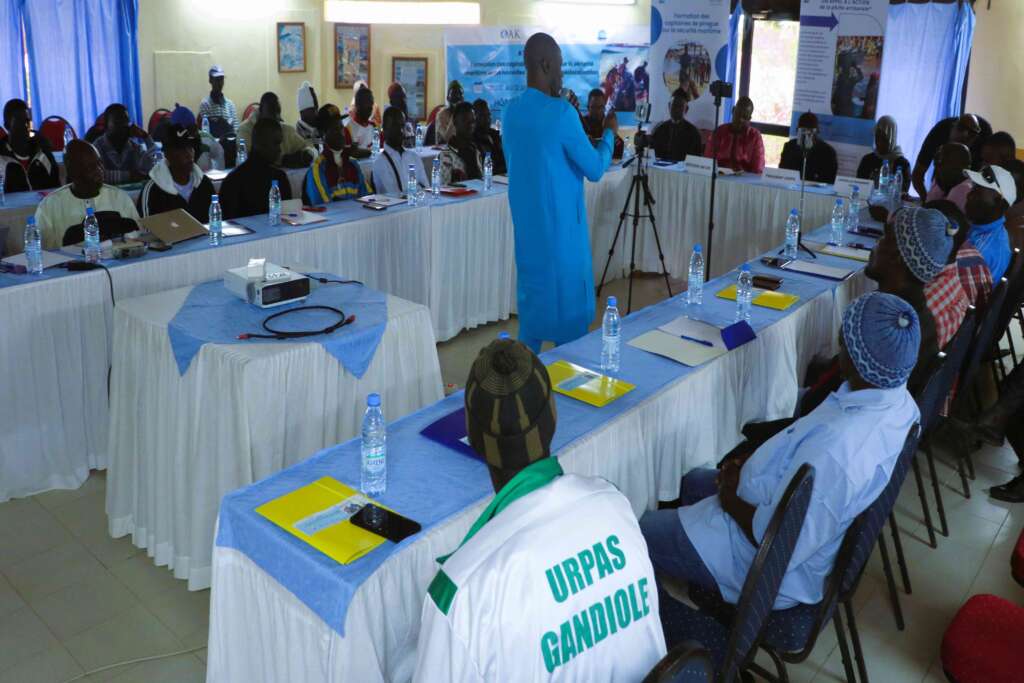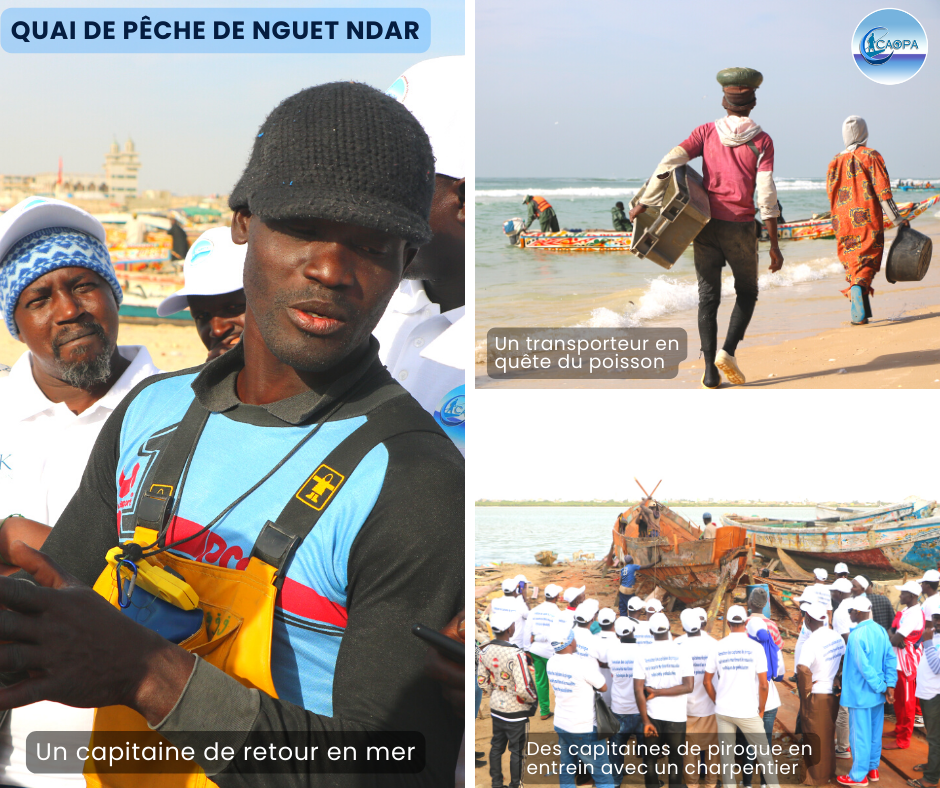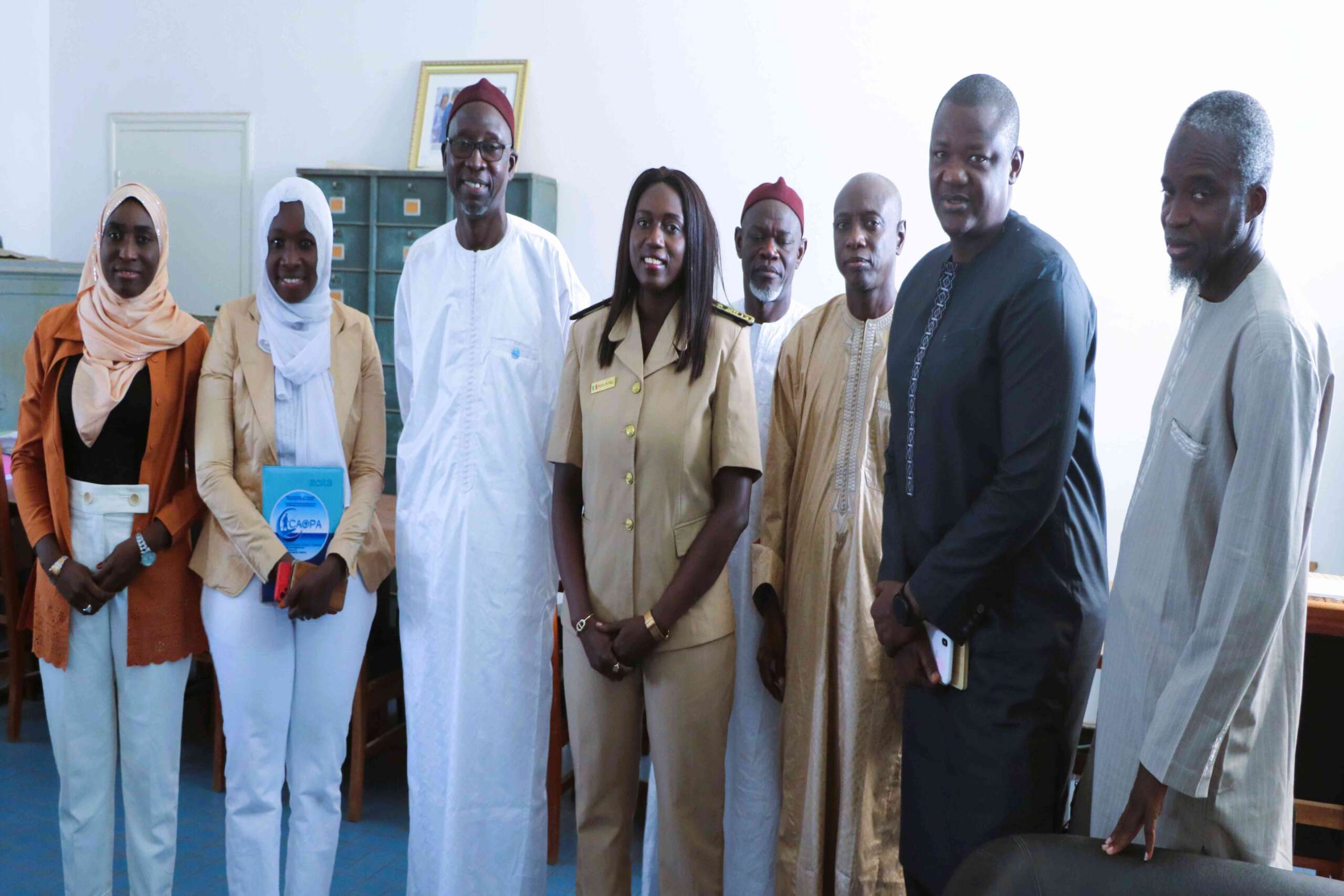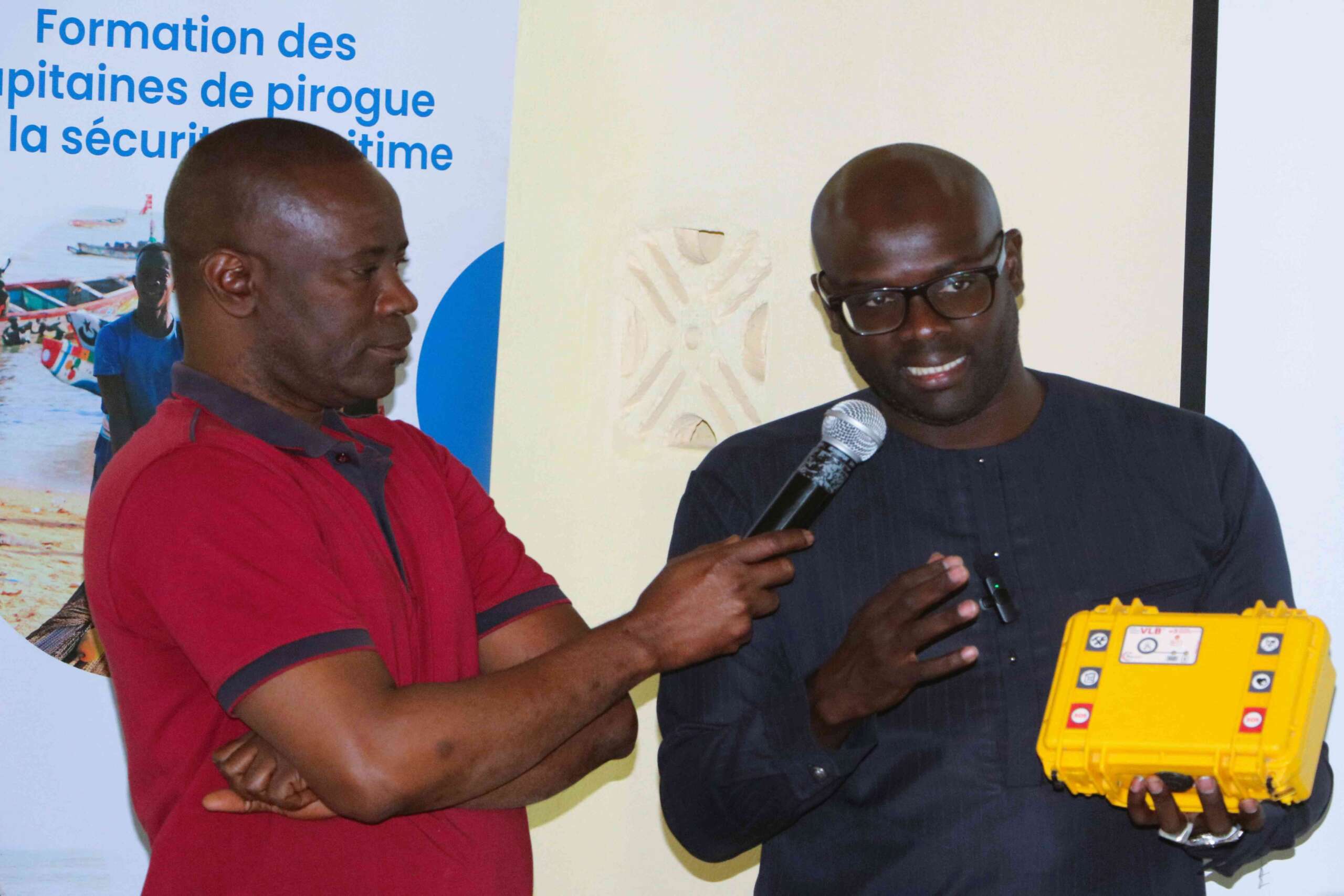In Senegal, the fishing sector plays an important role in economic and social development policies and strategies, due to its significant contribution to food and nutritional security.
For the Senegalese population, fish from fisheries remains a resource of primary importance, whether for food, nutrition, income or livelihood.
Fishing provides nearly 70% of the animal protein intake through an average consumption of 29kg per capita, a figure that makes Senegal one of the world’s largest consumers of fishery products. The fisheries sub-sector contributes 3.2% to the national GDP and 10% of value added in the primary sector. In 2019, fisheries were the country’s largest export sector, providing 13% of export earnings. Small-scale fishing accounts for more than 80% of landings at the various sites from Saint Louis to Cap Skiring.

However, fishing activities are faced with a number of challenges, namely the remoteness of fishing areas and the increase in the duration of tides due to the scarcity of resources and the increasing demand for fish and other fishery resources.
In Saint-Louis, in addition to climate change, there are anthropogenic actions, particularly with the opening of the river mouth. Thus, the conditions for maritime navigation are becoming increasingly difficult in Saint-Louis and lead to numerous obstacles to navigation, resulting in capsizing of canoes.
Training of canoe captains
In order to raise awareness among fishermen, in particular canoe captains, the African Confederation of Professional Organizations of Artisanal Fisheries (CAOPA) has trained them on maritime safety and geolocation news.
This was done during a workshop held from 10 to 12 January 2023 with the financial support of Oak Foundation.
The objective was to make young captains of small-scale fishing aware of the safety issues, the need to conserve fishery resources in a context of increasing scarcity of resources and a responsible commitment to action.
The opening ceremony was chaired by the regional inspector of fisheries and surveillance of Saint Louis.

In his speech, Mr. Lamine DIAGNE declared that: “this meeting takes place in a particular context of climate change and above all, of dangerous swells which continue to have a negative impact on the safety of fishermen at sea. And it will allow the captains of canoes to face up to their responsibility”.
Bringing together the captains of canoes from Saint Louis, Gandiol, Lompoul and Potou, this workshop is the second of its kind organized by CAOPA. The first workshop was held in December and brought together some thirty captains of the maritime and inland fishing sector.
The president of the National Inter-professional Council of Small-scale Fishing in Senegal (CONIPAS) welcomed the initiative of CAOPA and its partners for the organization of such a workshop for its members, which, according to him, is to be multiplied on the whole coast.
Malick FALL believes that the meeting should make it possible to know: “who is the captain, what roles and what responsibility a canoe captain has towards the team and the resource”.
For his part, the president of CAOPA indicated the reasons that led to the organization of such training.
“Today, we are in the process of inventorying many accidents, deaths and disappearances at sea. I am not saying that it is the total responsibility of the captains. But I believe that if they are well trained and informed to know how to manage their crews, this can limit what we observe,” said Gaoussou Gueye.
He also spoke of the challenges and opportunities ahead, following the exploitation of oil and gas. “This situation in relation to oil and gas platforms must lead to new behaviours of the actors and professionals of the fishing sector. And these professionals in the fishing sector must master the safety boundaries of these platforms, to avoid possible accidents at sea,” advised Mr Gueye.
Visit to the Guet Ndar fishing wharf
In the afternoon of Tuesday 10th January 2023, the workshop participants visited the Guet Ndar landing wharf (Saint Louis) and a canoe manufacturing site.

Objective: to observe, note and ask questions. On returning from the field, they made recommendations for improving the working conditions of small-scale fisheries professionals.
During the visit, the beneficiaries met with the executive secretary of the Wharf;
A woman fishmonger;
A canoe captain, back from the sea;
A purse seine fisherman; and
A manager of the wharf’s carpenters;
During the 72 hours, the participants had the opportunity to learn about the decree, defining the criteria for appointing captains, the selectivity of fishing gear, safety at sea, ILO Convention 188, new geolocation technologies (theoretical and practical aspects), among others.
A delegation from CAOPA received by the Governor’s deputy
On Thursday 12 January 2023, the President of CAOPA, Mr Gaoussou Gueye, accompanied by a team from CAOPA, the regional fisheries inspector, Mr Lamine Diagne, and the President of CONIPAS were received in audience by the Deputy Governor of Saint-Louis, Mrs Fatoumata Mokhtar Fall Faye.

For half an hour, Mr. Gueye presented CAOPA, explained its objectives, its vision, the issues and challenges of African small-scale fishing, specifically in Saint Louis, with the exploitation of oil and gas in prospect.
The president of CAOPA informed that the participants in the training were given a visit to the fishing wharf of Guet Ndar.
According to him, the situation is alarming: “We have noticed a glaring lack of basic infrastructure. The insalubrity of the landing wharf, with a large amount of plastic waste, the non-respect of the wearing of life jackets by fishermen, due to the unavailability of these life jackets that the ministry in charge should make available. However, we are here to talk about the safety of the people who work at sea,” he insisted.
Mr. Gueye proposed to the authorities to join efforts to inform and raise awareness among professionals on all concerns.
The president of CAOPA and continental coordinator of non-state actors informed Mrs FAYE that CAOPA is ready to accompany Saint Louis to improve the working conditions of small-scale fisheries professionals, under the aegis of the authorities. CAOPA’s primary partners are the governments of its member states.
Thus, CAOPA is urgently committed to working with the Governorate and CONIPAS to organize awareness-raising days on environmental protection, and to help find equipment for cleaning the beaches. But insists: Mr Gueye,”you must commit to using efficiently, in the interest of all, the equipment that will be made available to you”.
In return, Mrs. Faye, on behalf of the Governor, welcomed the visit and thanked the whole delegation for this initiative. She showed the openness of the Governorate to work with CAOPA, because “fishing in Saint Louis is facing huge problems”.
For her, CAOPA has arrived at a crucial moment for the fishing sector in the region.
According to Mrs. Fatoumata Fall Faye, one of the problems her administration is facing is the fact of having only one interlocutor, because there is a plethora of fishing organizations.
CR Aliou DIALLO


